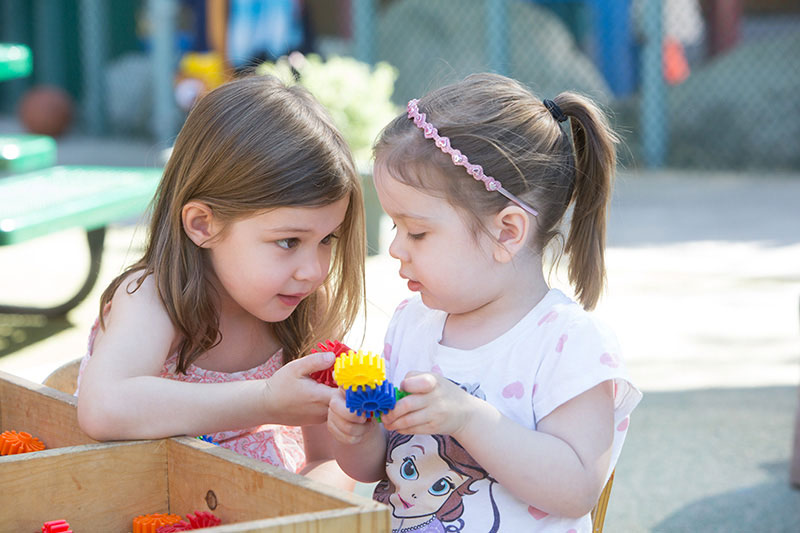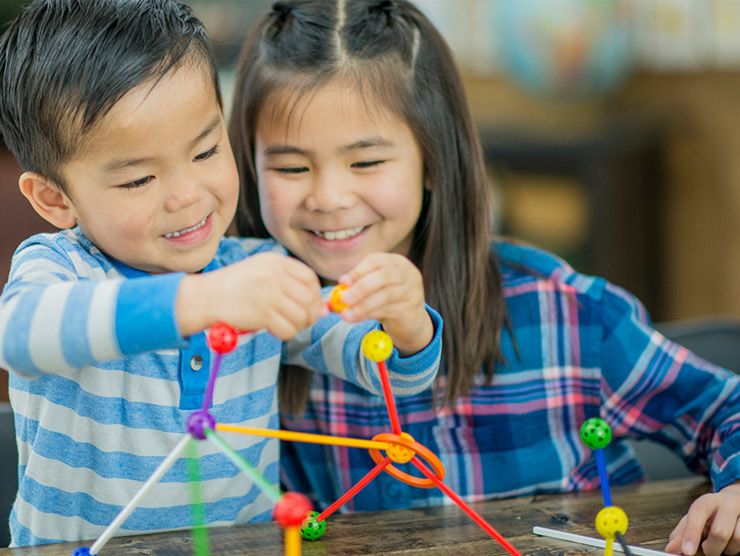Preparing your child for the next big step
Transitional kindergarten (TK) marks an exciting milestone for young learners and their families. Designed for children who are ready for more than preschool but not quite old enough for traditional kindergarten, TK bridges the gap between early childhood education and elementary school. It’s a year that helps build confidence, early academic skills, and social-emotional development — all in a supportive, age-appropriate environment.
Keep reading to learn how TK lays the foundation for long-term success and how programs like Bright Horizons’ Kindergarten Prep provide the same kind of enriching, transitional experience.
What is transitional kindergarten?
Originally introduced in California through the Kindergarten Readiness Act, transitional kindergarten was designed to give younger children an extra year of growth before entering kindergarten. TK is often considered the first year of a two-year kindergarten experience.
Though most common in California, similar programs exist across the country under different names, including:
- Voluntary Prekindergarten (VPK) in Florida
- Young 5s Kindergarten (Y5K) in Michigan
- Kindergarten Transition Programs in Washington
While these may be state-sponsored, private programs like Bright Horizons’ Kindergarten Prep offer a similar experience — a thoughtfully structured year that supports the academic and social needs of children at this stage.
Who eligible for transitional kindergarten?
Eligibility for TK typically depends on your child’s birthday and your state’s guidelines. In California, for example, TK is for children who turn five years old between September and February. Other states may have different cutoff dates or offer similar programs for four- or five-year-olds who fall just outside kindergarten eligibility. Private early education providers may offer pre-k and Kindergarten Prep programs that serve the same age group and provide similar benefits — without the limitations of state cutoff dates or district-specific enrollment policies.
How transitional kindergarten prepares young learners for success
Transitional kindergarten builds future success skills in areas such as:
- Early literacy and math
- Social-emotional learning
- Language and communication
- Executive function and self-regulation
Whether through a public TK program or a private Kindergarten Prep setting like Bright Horizons, children benefit from an engaging curriculum, caring educators, and a learning environment designed around their developmental needs.
With 90% of brain development happening before age 5, this early investment in education can make a lasting impact.
Transitional kindergarten vs. pre-school vs. pre-k
While terms may vary, the core mission of transitional kindergarten and pre-k is the same: preparing children for kindergarten.
Here’s a quick breakdown:
- Preschool serves younger children (typically ages 2–4) and focuses on foundational learning through play.
- TK and pre-k/Kindergarten Prep are more structured programs tailored to children who are nearing kindergarten age.
- Public TK programs may follow modified kindergarten standards and are typically state funded.
- Bright Horizons’ Kindergarten Prep follows a research-based, age-appropriate curriculum that mirrors the developmental goals of TK — with added flexibility and individualized attention.
Common barriers to transitional kindergarten
Despite its benefits, some families face hurdles when trying to access TK:
- Awareness gaps: Many parents don’t realize TK is an option or don’t know where to look.
- Eligibility confusion: Age cutoffs and state guidelines can be tricky to navigate.
- Logistics: Transportation or care gaps during off-hours can make enrollment tough.
- Limited access: Not all areas offer public TK — but private options can help fill the gap.
Bright Horizons helps simplify the process by offering flexible early education programs with the same developmental benefits as TK, often with year-round availability and supportive family services.
Find the right fit for your child with Bright Horizons
Whether your state offers TK or you're exploring private options, programs like Bright Horizons’ Kindergarten Prep provide the structure, support, and personalized care that help your child thrive. Our approach mirrors the developmental goals of transitional kindergarten — preparing your child academically, socially, and emotionally for the next big step.
With hands-on, project-based learning, skilled educators, and an environment built around safety and support, Bright Horizons gives families the tools and peace of mind to navigate this important year.
Looking for a high-quality early education program? Find a Bright Horizons center near you!




.ashx?as=1)
